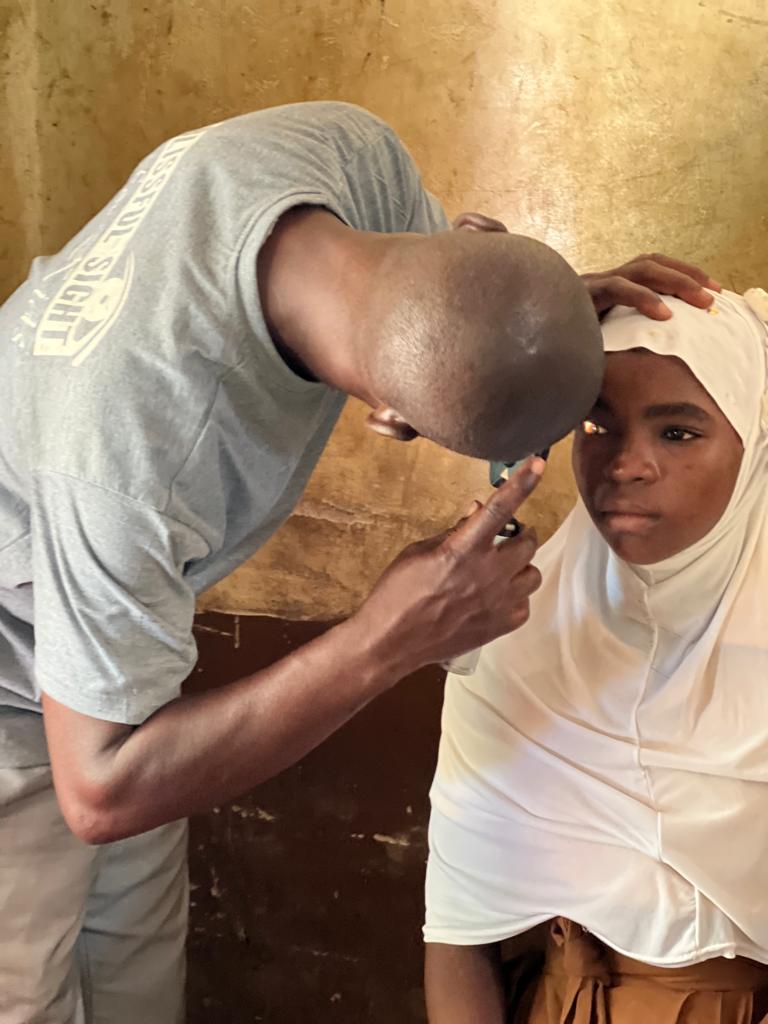By Philip Tengzu
Boli, (UW/R), July 20, GNA – Dr. Zakrea Al-hassan Balure, an Optometrist, has appealed to the public to access treatment for their eye conditions at the hospital instead of resorting to traditional medications.
He said some people still relied on traditional medications for a remedy to their eye problems rather than health facilities, which have the technology to offer proper treatment of those conditions.
“We are still appealing that once we have advanced to this level they (the public) should always give us (the health facilities) the first offer else mostly when they get to the clinic after they have done all those things (traditional medications) it is difficult to salvage the situation that arises from that”, Dr. Balure explained.
The Optometrist, who is the Manager of Bliss Eye Care, a private eye clinic in Wa, made the appeal in an interview with the Ghana News Agency (GNA) at Boli, a community in the Wa Municipality at the weekend during a free eye screening exercise for children in Boli and surrounding communities.
Bliss Eye Care organised the eye screening exercise under its Blissful Sight for Kids (BS4Ks) project, a charity intervention of the eye clinic, in partnership with the Wa Municipal Education Directorate.
He gave the advice after two children who came for screening virtually lost their sight, which Dr. Balure said could have been averted if the parents had sought early medical attention for them.
The father of one of the children said he spent a lot of money to seek traditional treatment for the son who eventually lost one of his eyes.
The Optometrist said using herbs for treatment and other practices such as hanging ropes on children’s necks to treat eye problems should be a thing of the past.

“…that will tell us that they still patronise a lot of the traditional medications over here but some of those conditions can just be solved by simple eye drops or maybe some surgery,” he said.
Dr. Balure appealed to community leaders, especially parents, to ensure children had access to the right eye treatment for them not to lose their sight since they were the future leaders of the country.
Mr Sebastian Amuh, the Wa Municipal Special Education Coordinator, said they had organised similar eye screening exercises in other communities for school children due to the important role good eyesight played in learning.
He encouraged teachers not to force a child to sit at a particular place in the classroom when the child himself or herself chose to sit at a different place and said that could be because of his or her vision problem.
Mr Muaz Umar, the Head Teacher of the Boli Primary “A”, said the screening exercise had revealed that some children had eye problems but were oblivious to those problems.
“Today’s exercise has actually diagnosed some of the (eye) problems my pupils have and had been given medication so it will help improve academic work in the class,” he intimated.
A total of 584 children went through the screening with 109 of them having normal eyes, 451 with pathological issues requiring medication, twelve had refractive errors requiring eyeglasses and twelve had cataracts and glaucoma.
All the children who needed medication or eyeglasses were each given one at no cost to them or their parents.
GNA